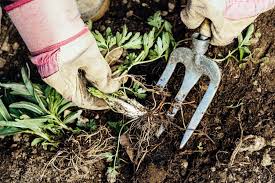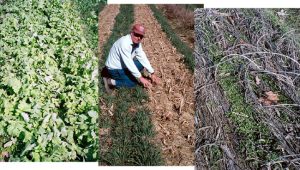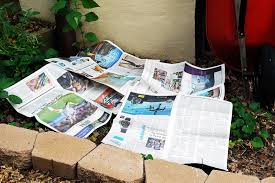How to get rid of Weeds Naturally

The worst enemy of any gardener is weeds. If neglected, they may soon take over and compete with attractive plants for nutrients, water, and sunshine. Chemical herbicides may damage animals, beneficial insects, and even the soil itself, although they can seem like a quick answer. Fortunately, several safe, reliable, and ecologically acceptable natural weed-controlling techniques are available. How to Troubleshoot a slow Internet Connection on a Laptop
An unsightly weed ruining a lovely garden is the worst. There are numerous weed-killing chemicals on the market, but many undiscovered, inexpensive, and natural methods exist. We’ll make it easy to learn them today. Just read the list below for a few minutes to get started. Prepare, let’s go! How To (Make A Simple Repair) On Your Car

Read Also: How to Lower Weed Intolerance (The Ultimate Guide)
1, Cornmeal or Polenta Prevents Weeds
Apply cornmeal, often called polenta, on your plant bed to prevent weed seeds from sprouting and proliferating. It’s crucial to wait to apply this strategy to a freshly formed vegetable garden until all of your plants have established themselves since cornmeal will prevent any kind of seed from sprouting.
2, Mulch or Use weed-suppressive ground covers to limit their growth.
Mulch: One of the best natural weed-suppression strategies is mulching. In addition to suffocating existing weeds, organic mulches such as wood chips, straws, or shredded leaves can keep new weeds from sprouting by obstructing sunlight. Cover your plants with a thick layer of mulch to avoid rot, leaving room around the stems. The mulch will enhance the fertility and structure of the soil as it decomposes.

Using ground-covering plants is a good technique to prevent weeds from obtaining the sunlight and water they require to flourish, depending on the kind of garden space you have. The good news is that if you did your landscaping, we have the answer to the question, “What type of ground-covering plants are best to use?” Professional landscape construction should take these ground covers into account in their design.
Read Also: How To Grow Herbs Indoors
The folks at Cornell University have already solved the problem. The selected plants “have been evaluated under different growing conditions for their ability to exclude weeds, ease of establishment, and low maintenance characteristics.
3, Pulling and Hoeing
Pulling and hoeing: One of the most dependable methods for getting rid of weeds is still good old-fashioned physical labor. Examine your garden regularly and remove any weeds you notice, making careful to eliminate the complete root system to stop it from growing again. To get rid of weeds at the soil’s surface in greater regions, think about utilizing a hoe. Remember that even a few neglected weeds may swiftly spread and undermine all of your hard work, so be persistent and attentive. How to Troubleshoot a slow Internet Connection on a Laptop
4, Boiling Water
It is really easy to use, yet it has great effects. When the water in the kettle is boiling, pour it straight onto the tops of your weeds. It could take three or four treatments to completely eradicate larger weeds, but this is an inexpensive, hassle-free approach that is still worth trying. Just make sure you’re dressed appropriately to avoid getting scalding hot water on your hands, legs, or feet. Try this way out—some individuals have reported that it works better than the vinegar method!
Boiled water may easily remove tenacious weeds in gaps or between pavement stones. Be careful not to splatter surrounding plants when pouring hot water on weeds. The strong heat will eliminate weeds and their roots without harming the environment. This strategy is suitable for small-scale weed management and may need repeated applications for stubborn weeds.
See Also: How to start a vegetable garden
5, To relieve them of Moisture, use Vinegar.
Household vinegar, with its high acidity, can be a potent weapon against weeds. What is there that vinegar can’t fix? To the remarkable list of uses for home vinegar, add “kill weeds.” Vinegar is inexpensive, easily found at your neighborhood grocery store, and entirely natural.
Although it seems like the ideal product for getting rid of weeds, there are a few factors to consider. Acetic acid, which makes up around 5% of vinegar, is its primary active component. When the component is made from grain or apples, fermentation is how it gets there.
Not only is acetic acid an excellent weed killer, but it is also an excellent plant killer! The way acetic acid acts is by completely removing moisture from the leaf of the plant or weed. It works quickly; it’s not uncommon to observe a weed or plant turning brown after applying vinegar to its leaves in direct sunlight for a few hours. But use caution—vinegar may destroy any plant or weed it comes into contact with. When there is no wind, carefully apply it with a spray bottle or pump sprayer on weeds only, making sure none reaches your plants.
6, maize Gluten Meal
maize Gluten Meal: A naturally occurring byproduct of processing maize, corn gluten meal has ingredients that prevent the development of weed seeds. Before weeds have a chance to develop, sprinkle maize gluten meal about your garden beds in the early spring. Moreover, corn gluten flour serves as a fertilizer by slowly releasing nitrogen to nourish your plants. Remember that corn gluten meal works best to suppress pre-emergent weeds and might not work as well against established weeds. Your Guide On How To Ask For An Extension On a Job Offer 2
7, Use salt as needed.
Grab a pinch of table salt from your kitchen cabinet and sprinkle it on the base of any weeds you’d want to see go. You may let the rain soak it in naturally over time. Refrain from dumping salt on your plants or grassy areas, since it is not selective and will destroy whatever it comes into contact with, unlike some of the other ways previously discussed. Keep in mind that it can spread a little bit as it dries down in the rain. Finally, exercise caution when applying salt to paved surfaces since frequent application may erode your pavers.
8, Use Some Homemade Herbicidal Soap
This is a fantastic stain-resistant alternative that may be applied to gravel, patios, driveways, and pathways. It is appropriate for gardens and other manicured areas and works rather rapidly. Being two-thirds natural and one-third dish soap, this one is a touch deceptive (we reasoned that dish soap is still far safer than the chemicals in most weed-killing solutions on the market).
Mix equal parts dishwashing detergent, vinegar, and salt; whisk; then spray on problematic areas as needed to create herbicidal soap for use around the house. The combination is able to stick to the plants because of the dish soap, sometimes referred to as dishwashing detergent. Have no salt at all? Don’t worry, gin is also an option! EnoughInfo.net
9,Newspaper kills weeds easily and prevents new growth.
To avoid using other procedures to remove existing weeds, apply this approach on top of them. Put old newspapers over existing weeds and suffocate them. The weeds will not be able to sprout if there is a fairly thick layer of newspaper covering them from sunlight.

When adding the newspaper layer, make sure the soil is damp before doing so. To conceal the unsightly newspaper, thoroughly spray it once it has been put and then cover it with a layer of mulch. After you apply the newspaper, don’t be shocked if you find some soil worms making your garden their home. How to friendzone someone (The Ultimate Guide)
Conclusion
Even though weeds can appear like an intractable issue, there are several all-natural ways to manage them. Accepting these natural substitutes for chemical herbicides can help you keep your garden flourishing and healthy while causing the least amount of damage to the ecosystem. There is a solution out there that works for you, whether you favour mulching, hand-pulling weeds or utilising natural weed killers like vinegar or corn gluten meal. Thus, put away the pesticides and allow nature to do its thing; your garden will appreciate it!




